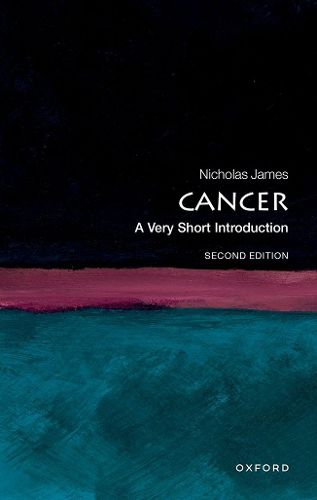Readings Newsletter
Become a Readings Member to make your shopping experience even easier.
Sign in or sign up for free!
You’re not far away from qualifying for FREE standard shipping within Australia
You’ve qualified for FREE standard shipping within Australia
The cart is loading…






In 1961 John F. Kennedy pledged to put a man on the moon by the end of the decade. Nine years later, Neil Armstrong and Buzz Aldrin walked on the moon. Ten years later, Richard Nixon echoed this pledge by declaring a 'war' on cancer. More than 50 years later, however, cancer remains one of the largest causes of death worldwide, with around 1 in 3 developing the disease. Curing cancer is not 'rocket science', but the question is, why has cancer proved to be harder to tackle than the moon landings turned out to be? Cancer research is a major economic activity. There are constant improvements in treatment techniques that result in better cure rates and increased quality and quantity of life for those with the disease, yet stories of breakthroughs in a cure for cancer are often in the media. In this Very Short Introduction Nick James examines the trends in diagnosis and treatment of the disease, as well as its economic consequences. Asking what cancer is and what causes it, he considers issues surrounding expensive drug development, what can be done to reduce the risk of developing cancer, and the use of complementary and alternative therapies. This edition includes a new chapter on the growing role of evolution theory in understanding cancer. ABOUT THE SERIES: The Very Short Introductions series from Oxford University Press contains hundreds of titles in almost every subject area. These pocket-sized books are the perfect way to get ahead in a new subject quickly. Our expert authors combine facts, analysis, perspective, new ideas, and enthusiasm to make interesting and challenging topics highly readable.
$9.00 standard shipping within Australia
FREE standard shipping within Australia for orders over $100.00
Express & International shipping calculated at checkout
In 1961 John F. Kennedy pledged to put a man on the moon by the end of the decade. Nine years later, Neil Armstrong and Buzz Aldrin walked on the moon. Ten years later, Richard Nixon echoed this pledge by declaring a 'war' on cancer. More than 50 years later, however, cancer remains one of the largest causes of death worldwide, with around 1 in 3 developing the disease. Curing cancer is not 'rocket science', but the question is, why has cancer proved to be harder to tackle than the moon landings turned out to be? Cancer research is a major economic activity. There are constant improvements in treatment techniques that result in better cure rates and increased quality and quantity of life for those with the disease, yet stories of breakthroughs in a cure for cancer are often in the media. In this Very Short Introduction Nick James examines the trends in diagnosis and treatment of the disease, as well as its economic consequences. Asking what cancer is and what causes it, he considers issues surrounding expensive drug development, what can be done to reduce the risk of developing cancer, and the use of complementary and alternative therapies. This edition includes a new chapter on the growing role of evolution theory in understanding cancer. ABOUT THE SERIES: The Very Short Introductions series from Oxford University Press contains hundreds of titles in almost every subject area. These pocket-sized books are the perfect way to get ahead in a new subject quickly. Our expert authors combine facts, analysis, perspective, new ideas, and enthusiasm to make interesting and challenging topics highly readable.